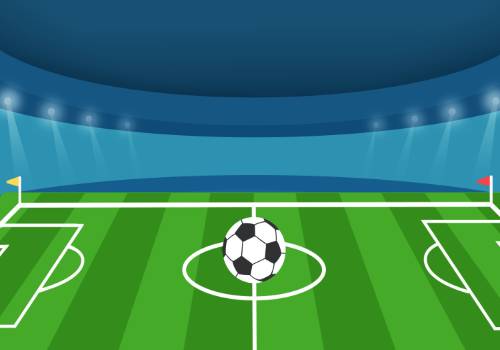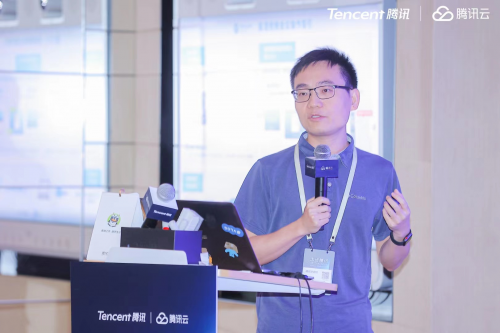向右滑動,查看中文內容
Science is not an easy subject, but with hard work, motivation and curiosity to learn more about our world, it becomes alive. Today, our Head of Senior Science, Mr. Graham Starkey, will briefly introduce the IGCSE science course at Wellington and share his insight on learning IGCSE science with us.?
 (資料圖片僅供參考)
(資料圖片僅供參考)
Graham Starkey
Head of Senior Science
At WCIH, all pupils take the Edexcel triple science route, i.e., every pupil takes an IGCSE in biology, chemistry and physics. Therefore, pupils cover more content and are better prepared if they take science A Levels. Statistically, pupils who take separate IGCSE sciences are also more likely to get higher grades in A Level science subjects. Most top universities prefer an application for science subjects to have taken the triple award option at IGCSE. Many skills are associated with taking science IGCSEs, such as research, problem-solving and analytical skills or developing a scientific way of thinking.?
We start the course in Year 9, so we give three years in which pupils need to complete the course. At the end of the course, pupils will sit six final examinations (two per subject), and the final grade is on a 9 to 1 scale.?
Next, let us listen how Mr. Starkey replied to some frequently asked questions.
How do pupils prepare for IGCSE science assessments???
The IGCSE in-house assessments usually consist of a 45-minute end of topic unit and past paper questions related to the studied topic. During the year, it is common to have more extended mock examinations, usually sat under examination conditions. The best way to revise for any assessment is to use different revision strategies and find the best ones that work for you. For instance, some pupils prefer to write their own notes; some prefer drawing flow charts or diagrams. Long-term memory will remember the details by not simply reading but writing in different formats. Of course, pupils should look at past examination papers and learn how to read a mark scheme. It will help pupils understand the question and learn how to gain maximum marks.?
How is science taught at Wellington??
The methodology we follow in teaching science at WCIH is hands-on practical, or activity-based learning. Our pupils have state-of-the-art experiment facilities at Wellington, so they are better prepared for assessed practical work at A Level and universities. We believe that pupils learn more by experiencing and carrying out scientific experiments by themselves. Because of how we teach at WCIH, pupils acquire teamwork and communication skills.
We have also invited renowned guest speakers to deliver inspiring speeches for our pupils. Last semester, we invited Dr. Cristiano Alpigiani to pay a virtual visit to our Year 9 pupils, a great opportunity to learn about the Large Hadron Collider, meet an established scientist and build upon their existing knowledge in learning science. We look forward to having more real-life scientists to inspire our young scientists.
What are the most common mistakes inscience assessments??
Pupils make mistakes in assessments by not reading the question carefully. They think they understand what the question has asked and answer too quickly without realising they are on the wrong path. Pupils often do not know the command words of each question and what they mean. It is something that needs to be taught over a period of time. In some questions, there are some ‘hidden’ clues in the text that pupils can overlook.
To succeed in science, pupils must read more and discuss science using the correct terminology. If they can master this, scientific words will become part of their everyday conversations.
Do you have some suggestions for pupilsto memorise these scientific terms?
The best strategy to memorise words is first to understand what these words mean in the correct context. Once they know the word’s meaning, it can be used as part of their spoken language and will be easier to memorise. Because some words stem from Latin, you can work out what they mean by learning the prefix. For instance, in science, the prefix?photo?means light hence the words?photographs,?photosynthesis,?photocell and photocopier.?
What careers do science subjects lead to?
Physics is a gateway subject and can lead to a host of careers in a whole range of industries, such as engineering, IT, the internet, and the energy industries. In addition, biology and chemistry can lead to jobs which are just as diverse such as healthcare, medicine, and pharmaceuticals, to name just a few.
Sometimes, it feels like science is an abstruse course. So how do students stay motivated and enthusiastic about learning science?
Like everything, motivation is the one factor that needs to be maintained as the IGCSE is a three-year course. Success might not come easy during this time, but it is essential to be resilient and not give up. Always maintain a positive mindset and realise that everyone learns from mistakes. Enjoy the pursuit of gaining more scientific knowledge. Pupils need to develop a sense of passion towards the subject and persevere towards the long-term goal of achieving their best grades. Grit is not something you are born with; you don’t learn it in a classroom. However, it will define you as a person as you get older.
Swipe left for English
要學好科學并不是一件容易的事。要讓科學學習生動起來,就離不開勤奮積極的學習態度和旺盛的求知欲和好奇心。今天,中學部科學教研組長Graham Starkey將為我們介紹惠靈頓的IGCSE科學學科,分享他對IGCSE科學學習的見解。
Graham Starkey
中學部科學教研組長
在杭州惠靈頓外籍人員子女學校,所有學生都將學習三科學,即分別參加生物、化學和物理的IGCSE考試。三科學覆蓋的科學知識更廣泛,也能讓計劃在A Level階段繼續修讀科學學科的學生更加得心應手。數據表明,修讀IGCSE三科學的學生更能在A Level科學學科考試中取得高分。如果計劃在高校深造科學學科,那么在IGCSE階段選修了三科學的學生更能得到大多數頂尖高校的青睞。學習IGCSE科學學科還能鍛煉學生的調查能力、解決問題的能力和分析能力等,培養起科學的思維方式。
我校學生從九年級開始學習IGCSE科學學科,共有三年時間來掌握課程知識和技能。課程學習結束后,學生將完成共六份試卷(每科兩份),最終評分采取9-1分的評估標準。
下面,讓我們來聽一聽Starkey老師對一些學生常見問題的解答。
學生要怎樣為IGCSE科學測試做準備呢?
IGCSE科學學科的課上考核通常是45分鐘的單元末小測和學科相關的真題解答。學年中,我們會開展一些拓展模擬測試,讓學生熟悉真正的考試環境。考前復習有許多通用的技巧,即采用不同的復習策略,找到最適合自己的方法,堅持復習。例如,有的學生喜歡記筆記,有的喜歡畫流程圖或示意圖。保留在長期記憶中的不是單純讀到的知識點,而是用不同方式寫下來的細節。當然,學生還要從以往真題中汲取經驗,看懂評分機制,理解問題背后的邏輯,掌握拿高分的技巧。
在惠靈頓,老師是如何教授科學學科的呢?
在惠靈頓,我們采取的是實操型的教學方法,即基于活動的教學法。學校配備先進的實驗設施,能讓學生為后續A Level學習和大學階段的實踐操作夯實基礎。我們相信,學生能在親手做科學實驗的過程中學到更多。這種教學方法還能培養學生的團隊協作能力和溝通技能。
我們還會邀請知名客座嘉賓來為學生開展講座。上學期,我們邀請科學家Cristiano Alpigiani博士與九年級學生開展了一場連線活動。活動中,同學們得以了解大型強子對撞機、結識頗有建樹的知名科學家、拓展以往所學。期待著未來能有更多的科學家來為惠靈頓的年輕科學家帶來啟迪。
在科學考試中,學生最常犯的錯有哪些?
學生不仔細讀題時就會出錯。讀題不認真、急于答題,犯錯就在所難免。同學們常常不明白問題里的指令詞和意義,這時就要認真地學習一段時間,明確問題的含義。有些問題的措詞里含有“隱藏”線索,這也是學生容易忽略的。
要學好科學,學生必須要多讀、多用正確的科學術語開展討論。一旦熟練掌握后,術語就能成為日常對話中的一部分。
您有什么讓學生學好科學術語的方法嗎?
記憶術語的最佳策略是要先理解這些單詞在正確語境中的含義。先理解好,再多說幾遍,就能記住了。有些術語詞源于拉丁語,那么學會單詞前綴就能分析出單詞的意義。例如,在科學領域,前綴“photo”的意思是“光”,于是“照片、光合作用、光電池、復印機”等帶這一詞綴的單詞(photographs, photosynthesis, photocell, photocopier)就比較好理解了。
學習科學學科后,未來可以從事哪些職業呢?
物理學是一門包羅萬象的學科,學習物理后可以從事工程、信息技術、互聯網、能源等行業的多種職業;生物和化學學習也能敲開五花八門的職業大門,如保健、醫療、制藥等等。
科學學科有時候比較晦澀難懂。學生要怎樣保持學習的動力和熱情呢?
其實做很多事情都離不開求知的動力。要學好持續三年的IGCSE科學課程也是一樣。成功從來都不是一件容易的事情,所以我們要有披荊斬棘的毅力和不輕言放棄的信心;要有積極向上的思維,相信“失敗乃成功之母”;還要享受追求科學知識的快樂,培養起對科學學科的熱愛,持之以恒地爭取在考試中取得最好的表現。勇氣不是與生俱來的,無法在教室里習得;但隨著年歲的增長,它將成為讓人脫穎而出的珍貴品質。
Arrange a visit
校園參觀
Applications for Year 1 - Year 12 are now being welcomed for the 2023-24 academic year at Wellington College International Hangzhou. We can offer you and your family a tailored one to one bespoke private tour where you will meet the Heads of school and experience our excellent teaching and learning. Once received, our Admissions team will be in touch.
杭州惠靈頓外籍人員子女學校2023-24學年的招生通道已開啟。我們將為您與您的家人提供定制專屬校園參觀,您將與學部校長面對面,體驗我校出色的優質教學。招生部門將在收到您的咨詢表后與您聯系。Monday - Friday周一至周五9:00am and1:00pm
上午9:00和下午1:00
關鍵詞:


















 營業執照公示信息
營業執照公示信息